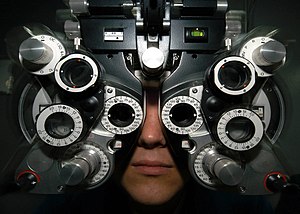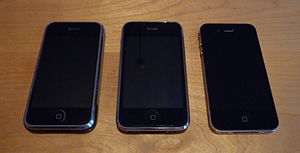Image: Arial view of the Pentagon after the 9/11 attacks. Photo by TSGT CEDRIC H. RUDISILL, USAF ([1]) [Public domain], via Wikimedia Commons.
Years have passed since Osama bin Laden sent 19 hijackers to murder 2,977 human beings in an act of infamy. I remember thinking that the High Holy Days would never come around for me again without those memories.
Some experiences mark us forever. Any American over the age of six on September 11, 2001 will never forget that date. Any American my age or older will never forget November 22, 1963. I was only a little girl, but I remember exactly where I was the moment the news came through of President Kennedy’s assassination.
As with moments of national trauma, there are moments of individual trauma that mark a person forever. No one ever “gets over” a rape or the murder of a loved one. The man who discovers that the savings of a lifetime have been swindled away, leaving nothing but insecurity for the future will never forget the moment when he understood what had been done to him. The parents who lose a child will never be the same.
In a little over a week, we will read the prayer, Unetaneh Tokef, which begins, “We will ascribe holiness to this day.” It affirms that we do not know what lies before us in the year ahead: we do not know who will live, and who will die, or by what means any of this will happen. The prayer is graphic and dreadful. It pulls no punches; it reminds us that none of us are immune to tragedy.
Many find this prayer upsetting and troubling. It seems to say that God punishes the wicked with sorrows, and that the good will not suffer. Any reasonable person knows that is foolishness. Bad things happen to good people all the time, willy nilly. When the towers fell eleven years ago, they fell without reference to the morals of the people killed inside them.
What shall we do, then, with the line in the prayer, “But teshuvah, tefillah, and tzedakah avert the severe decree”? (See below for the translation.) It comes almost at the end, just before a paragraph on the mercy of God. But for those who have suffered a terrible loss, where is the mercy?
I do not believe that we can ward off misfortune even with teshuvah, tefilah, and tzedakah. I believe, instead, that those are the means with which we may work towards a life after tragedy. There is no “meaning” to be had from suffering except the meaning that we build out of it, if we so choose. Teshuvah, tefillah, and tzedakah are the tools with which we can build that meaning.
Teshuvah involves taking responsibility for our own actions and changing our own behavior as needed. It reminds us what is in our control, and what is not. Tefillah is prayer, which can power and shape the changes we choose to make. Tzedakah is giving for the purpose of relieving the misery of others: it takes us outside ourselves and our troubles, to notice and act to relieve the troubles of our fellow human beings.
Our immediate instinct when terribly injured is often to seek revenge. When the wrong done is so great that there is no way to make it right, we want to lash out and make the agent of that wrong suffer as much or more than we. History shows, though, that revenge rarely settles anything. We may intend to “teach a lesson” but in fact all we do is set off another round of wrong. If you don’t believe me, look at the Hatfields and the McCoys, at the Treaty of Versailles, or at the action in any schoolyard in town.
If, this Elul, you are carrying the burden of a tragedy, first of all, my sympathy. You didn’t sign up for it, and you didn’t deserve it. I do not believe that God “sends” misery to people to test them, or to punish them, or any such thing. We cannot avoid falling victim to these things, but we can choose our response to them. I have personally found teshuvah (personal responsibility), prayer, and charitable giving to have remarkable healing power, not to “get me over” my private sorrows but to carry me back into life.
No one who lived through September 11, 2001 will ever forget it, nor should we. It is up to us, learning what we have learned, knowing what we know, to find a way forward, towards a future of peace, of shalom. So it is for individuals who suffer individual trauma, not to forget, but to find a way, at last, to choose life.
- Teshuvah for Beginners (coffeeshoprabbi.com)
Like this:
Like Loading...










